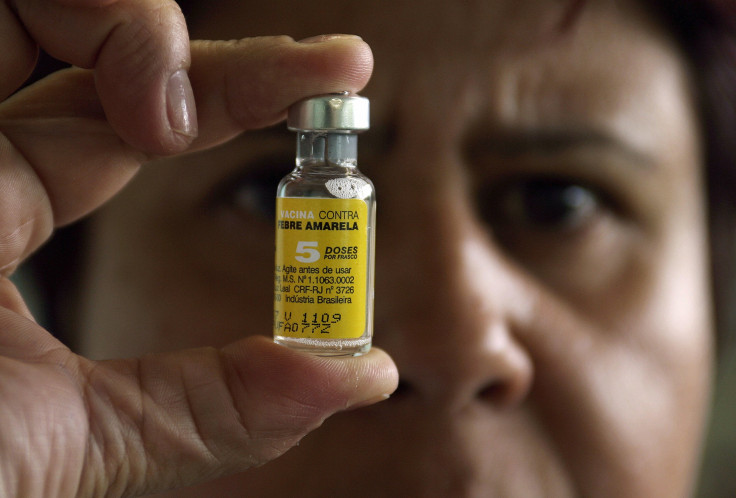The Yellow Fever Outbreak In Angola May Become The World’s Latest Global Health Emergency

Joining the ranks of Zika as one of the latest global health emergencies is an old illness that brings to mind images of colonial epidemics and slave trade routes: yellow fever. In recent months, Angola has seen a yellow fever outbreak that has infected nearly 2,000 people and killed 258 people.
In a new JAMA paper, two Georgetown University professors outline the extent to which the current outbreak may spread to other countries, and urge the World Health Organization to take emergency steps to prevent it. The researchers’ biggest concern is a worldwide vaccine shortage for the acute viral disease. Though the yellow fever vaccine is effective and has prevented thousands of deaths since it first came into use in the 1930s, the vaccine supply is limited, considering the huge numbers of people around the world who need to be immunized.
The “supply shortages could spark a health security crisis,” the professors wrote. “Acting proactively to address the evolving yellow fever epidemic is imperative.” They added that WHO should “urgently convene an emergency committee to mobilize funds, coordinate an international response, and spearhead a surge in vaccine production.”
The virus is spread by the Aedes aegypti mosquito, which also carries the Zika and dengue viruses. Scientists generally believe the virus originated in and was endemic to Africa, spread by mosquitos or through contact between non-human primates and humans. But while many natives in Africa had developed immunity to the virus, European colonizers and slave traders brought the disease to other parts of the world in the 17th and 18th centuries. Outbreaks occurred throughout Barbados, West Indies, New York, Philadelphia, New Orleans, Cartagena, Cuba, and southern Europe until the first vaccine was developed in 1936. According to the Centers for Disease Control and Prevention, while a yellow fever outbreak hasn’t occurred in the United States for over 100 years, outbreaks are still common in African and South American countries due to large at-risk populations.
On March 24, WHO reported some 5.7 million people in Luanda, Angola were vaccinated against yellow fever. But a vaccine shortage may cause problems down the line as health workers scramble to vaccinate as many people in Luanda and surrounding areas as possible. “Whilst concerted efforts are being made to stop the outbreak, there is a global vaccine shortage, with the emergency stockpile completely depleted,” the organization stated. “An additional 1.4 million doses are needed to vaccinate the population at risk in Luanda province alone.”
In the paper, the professors noted that it’s important for WHO to take some steps to better manage public health emergencies, given the recent Zika and Ebola outbreaks. “The complexities and apparent increased frequency of emerging infectious disease threats, and the catastrophic consequences of delays in the international response, make it no longer tenable to place sole responsibility and authority with the [WHO’s] director-general to convene currently ad hoc emergency committees,” they wrote. Thus, a “standing emergency committee” would be a better system to fight outbreaks in a timely manner.
Source: Lucey D, Gostin L, et al. JAMA. 2016.
Published by Medicaldaily.com



























